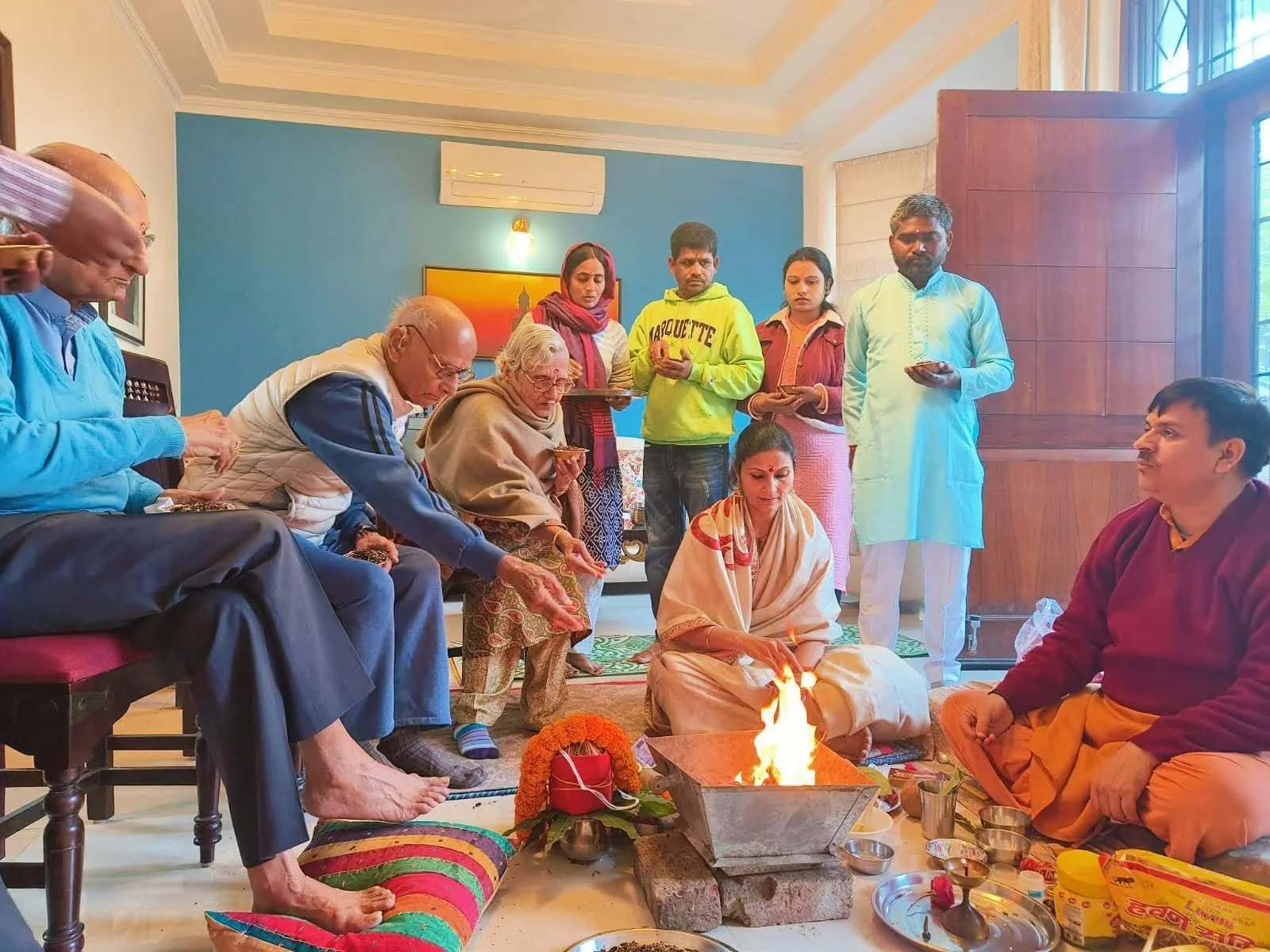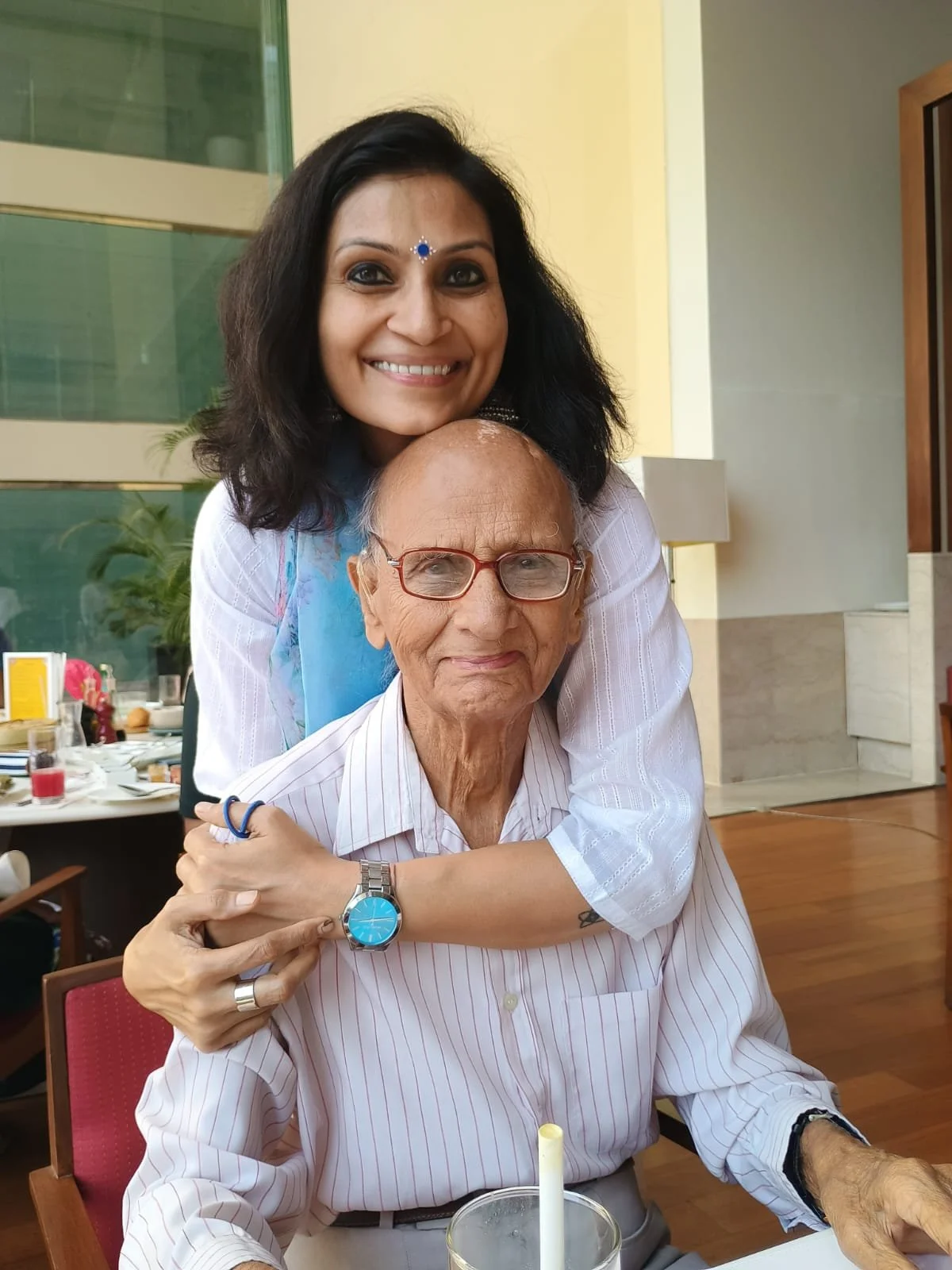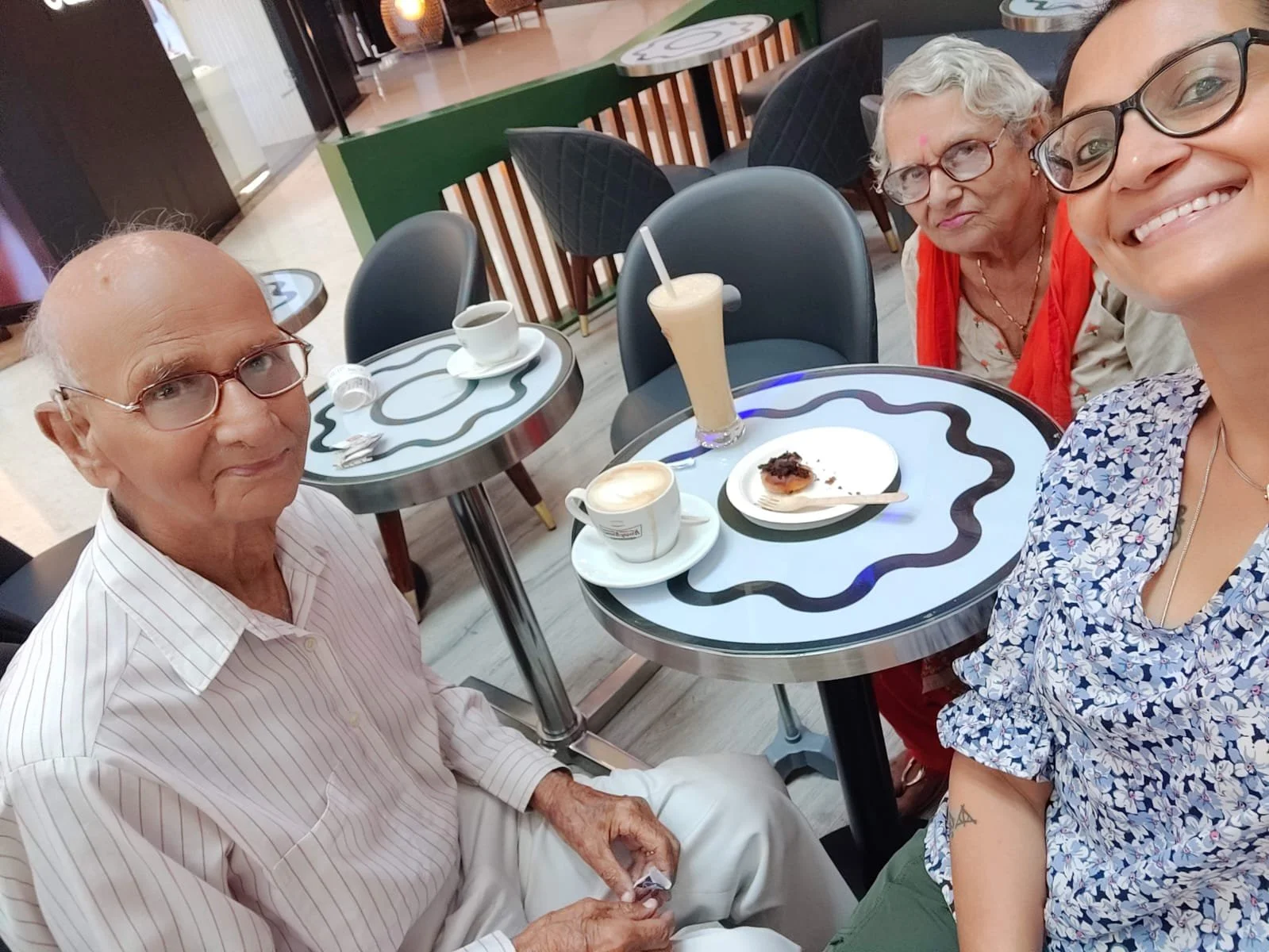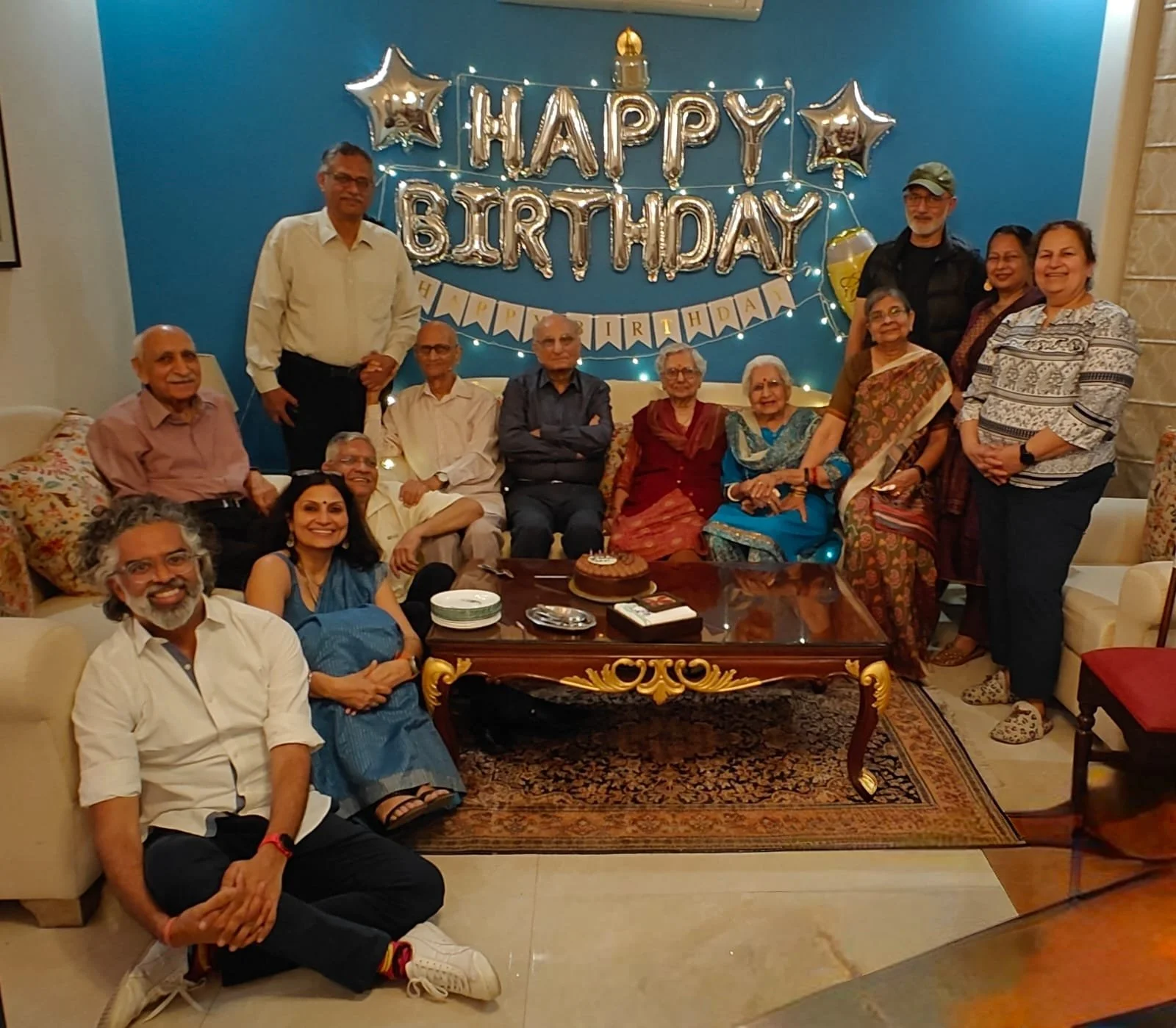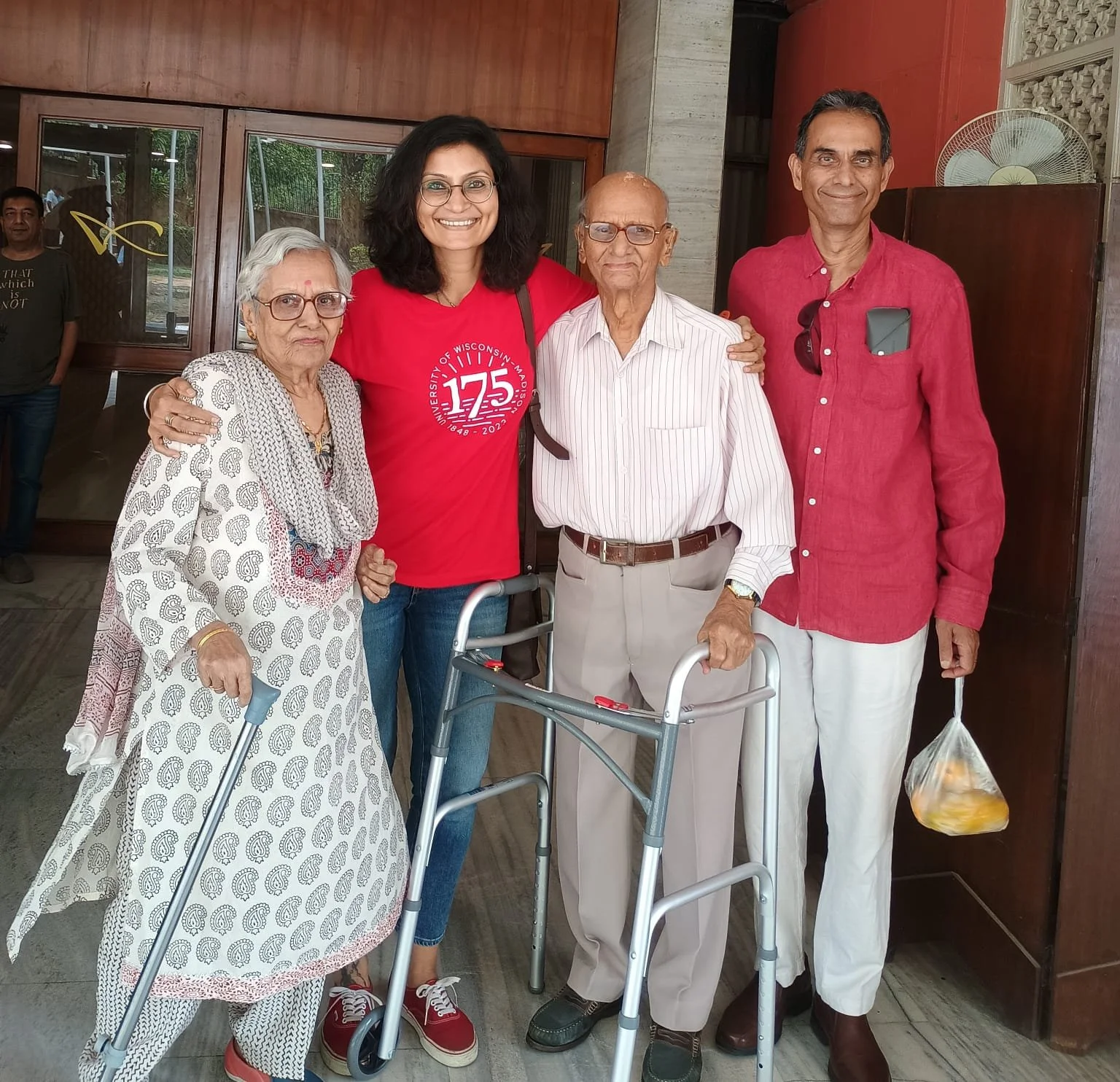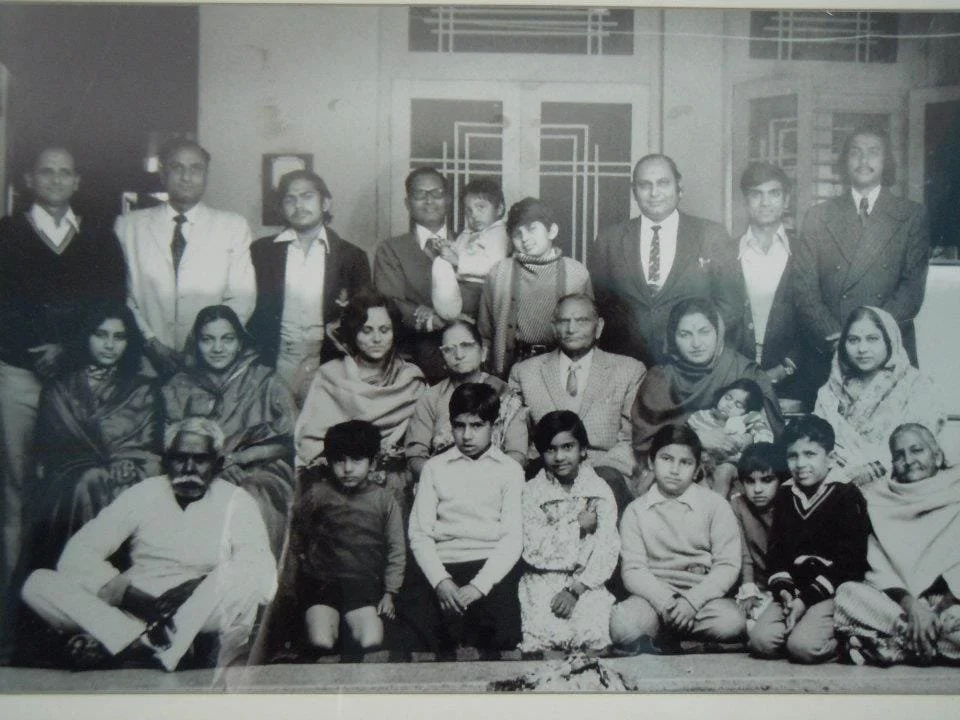Two days ago, our family lost its oldest branch: my Tayaji. I have been trying to knit words together since then, but grief is a strange seamstress: it pulls at the thread just when you think you’ve found the right stitch. What I keep returning to is this one feeling—he was the cover above our heads. Like a great tree with wide, generous branches, he stood there for all of us, offering shade without ever drawing attention to the summer sun he quietly kept off our backs. Today, the light feels harsher. The wind feels louder. Even now, in the emptiness, the cover he gave us is still there.
I think of another time when I understood the size of that shelter. Close to seven years ago, when Mom passed away, those first stunned days felt like standing in a room with a missing wall. We reached for every familiar anchor, and he and Taiji were in Australia with my cousin. The incompleteness of that moment is hard to name; it was a silence inside the silence. We felt the gap so acutely that we went to see him less than three weeks after Mom’s passing. I remember that meeting like a soft light. We didn’t need many words. He held the loss with us, absorbing some part of it the way only an elder can, turning the volume of grief down just enough that we could hear our own heartbeat again. In that embrace, the tree felt close again. The sky was still broken, but we were under shade.
He was my father’s oldest brother, the eldest of the family; both an anchor and a compass. In our home, hierarchy never felt like a rulebook when he was around; it felt like care. Respect gathered around him naturally, as if it knew where to sit. He didn’t have to ask for it. He earned it by being exactly who he was: steady, fair, affectionate, and deeply human. There was an ease in the way he looked after everyone, a quiet confidence that made difficult things feel manageable. If something needed doing, it would be done. If someone needed holding, they would be held.
He also carried a proud public life with the same quiet dignity. He served the nation from 1953 to 1989, rising to become the 17th Director-General of the EME (Corps of Electronics and Mechanical Engineers). Yesterday’s cremation by the EME at Delhi Cantonment was a deeply fitting tribute to the very high command he held and to a lifetime of service. Watching the EME family honour him with their presence, their salutes, the wreaths, and their care, felt like the country itself was laying a hand on his shoulder and saying, “Thank you.” It was a beautiful send-off, as precise as it was tender.
For the past two years, Taiji and he would stay for a few weeks at a time with Papa and me. Those seasons had their own rhythm. Evenings were our most alive time. We would settle into dinner together; the ordinary sacredness of a family at a table. Papa would be sitting next to me, and as always, he would tease me. I would turn to my Tayaji for justice, presenting my “case,” already half-laughing, and half losing. And he would smile the smile I can still see, and remind me that the part of the ear that registers complaints against his brother does not work. In other words: the “complaint register” is closed whenever his baby brother is involved. It was his way of protecting Papa like he had been since he was a child, and his way of loving me. In that moment, the room would fill with a warm, familiar laughter, the kind that dries tears before they fall.
He wasn’t grand in his gestures, and maybe that’s why they felt so big. His affections arrived like the first breeze after a sweltering day, noticeable because of the relief they brought. He would ask about my work, not to fill silence but to understand. “Kaam kaisa chal raha hai?” And he waited for a real answer. If I rambled, he listened. If I hesitated, he held the pause with me. If I looked weary, he would empathize that I looked tired. He had a way of making me feel that what I was doing mattered, and more than that, that who I was becoming mattered most.
Some memories live in the small rituals we built around him: coffee dates, lunches at Gymkhana Club with both of us sharing our favorite hot brandy punch, where our conversation meandered from news to family stories to gentle advice; birthday celebrations with cake, family and a few close friends gathered around, many photos, and that look in his eyes that said, without words, “This was so much fun.” We had the precious blessing of celebrating his 95th birthday at home this year. I was so tempted to share those photos that night, to let the world see the light in his eyes. But a small, superstitious part of me—the part that still believes in guarding joy from buri nazar—held back. It surprised me, that fierce protectiveness, the child in me wanting to shield him from even the unseen. It felt right to keep that happiness close, to hold it like a warm ember cupped in both hands—another kind of shade I wanted to offer back to the man who had sheltered us for so long.
He was so proud of my running that he would boast to his friends about how I ran 100 kilometers in Ladakh. His face would light up as if he’d been the one at the start line. Over dinner, I’d tease him: “Tayaji, I’m going for a run tomorrow. Will you come? It’ll be so much fun.” He’d swat the idea away with that twinkle in his eye and a straight face, and set some impossible condition: “I’ll come if you leave at 3 a.m. Tab theek hai.” Or he’d chuckle and say, “Bas 10 kilometer? Bohot kam hai. Main hota toh 40 daud leta.” That was our banter—his mock bravado, my feigned outrage, both of us laughing. Underneath the jokes was his unmistakable pride. He believed in my adventures not just as distances, but as expressions of courage, and he held that belief up for me on the days I couldn’t find it myself.
Last year, when I went through the most difficult period of my life, it was his quiet presence that comforted me. He didn’t fix. He didn’t preach. He didn’t judge. He didn’t rush me past my pain. He simply sat—near enough to catch what might fall apart, steady enough to remind me that not everything was breaking. His silence was not emptiness; it was comfort. It said: I’m here. You can rest. You don’t have to hold yourself together alone. In that season, I learned how powerful a gentle presence can be. He gave me permission to breathe when every breath felt heavy.
The house feels different now. You reach for a chair that isn’t pulled out anymore. You enter his room knowing he won’t be returning. It is astonishing how many tiny hinges a life turns on; the casual conversations, the repeated jokes, the predictable way someone says your name. When someone you love is gone, even everyday things suddenly feel like reminders. The cup, the cookies he liked, where he sat, his place at the dining table—each remembers. And I remember with them.
People say time will soften the edges. Maybe. But I’m not in a hurry to sand anything down. Edges remind me that love had a form, that it belonged to someone specific, that it was carried by a voice I can still hear if I close my eyes: “Deepu.” A hundred small permissions live inside that word. Permission to be safe. Permission to be silly. Permission to be seen. It is a blessing disguised as an everyday greeting, a quiet prayer that follows you out the door and waits at the threshold until you return.
What do we do with a void this big? Perhaps we do what he taught us to do, without lectures and without proclamations. We show up. We become branches for one another. We become the cover we have lost—imperfectly, yes, but sincerely. We defend the people we love in rooms where their names are spoken. We forgive quickly and tease kindly. We keep birthdays warm and simple, we make time for coffee, we keep asking about each other’s work; not out of duty but out of real care, and we tell our running jokes at the dinner table, because laughter, too, is a kind of shelter. We remember that the point of family is not uniformity but belonging.
I think of Papa most of all. To lose your older brother is to lose a piece of your own beginning. It is to look up at a sky that once had a familiar star and realize it has drifted beyond your reach. To Papa: may the shelter he gave you become the shelter we give you now. We will learn how to be tall the way he was tall—not by casting big shadows, but by offering good shade.
And to you, my dear Tayaji. Thank You. Thank you for the gentle authority that never made us small, only safer. Thank you for the affection that never felt like a performance, only like home. Thank you for standing quietly so the rest of us could sit and eat and joke and believe we were protected. You were the first shelter and you will always be the returning shade. If love is a place, you were our North Star—the point we used to orient ourselves and find our way back, especially after Mom. I will carry your laughter into rooms you will not enter again. I will hold your silence the way you once held mine. And I will keep running—with your pride tucked into my pocket like a blessing.
I don’t know how long it will take for the ache to soften, and perhaps that’s not the right measure. Perhaps the right measure is this: how faithfully we carry what you stood for into ordinary days; how often we choose to be patient, to be kind, to be strong in ways that do not bruise. Perhaps the right measure is the way we keep your voice alive in ours, and your shelter alive in our gestures: a hand on a shoulder, a cup of coffee, a birthday remembered, a question asked at the right time, a quiet presence that says “I’m here.” I can almost see Mom, Vijay Tayaji, and you, three cups of tea between you, meeting again beyond this realm, where time is soft and love needs no words.
May your journey be peaceful. May your rest be gentle. May the love you gave so freely come back to you a hundredfold, wherever you are. The branches feel emptier today, yes, but because of you, we know how to lean on one another. We know how to stand. We will keep the shade going.

